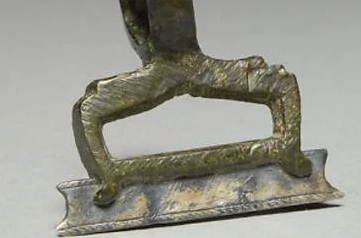Fashion and men’s grooming have been prevalent in societies throughout the centuries, and since the beginning of time. Facial hair and the act of shaving had different meanings and symbolized different things in different cultures and civilizations.
Read on to learn more about some ancient shaving rituals, and how different cultures and civilizations recognized and treated shaving. 
Table of Contents
Examples of Ancient Shaving Rituals
In many cultures, facial hair symbolized wealth, power, and virility. Men’s facial hair profoundly symbolized their status within society.
Here are some interesting ways shaving was viewed in different civilizations:
– Ancient Egyptians
Egyptians recognized body hair as a man’s primal nature. To reject the animalistic nature of man, Egyptians shaved their beards, heads, and body hair. Some even plucked their eyebrows and eyelashes! Many Egyptian pharaohs were even buried with ancient jewel-encrusted razors for afterlife grooming.
– Ancient Mesopotamia
Beards were not verboten in this part of the ancient world but encouraged! A thick, lush beard symbolized power and virility. In addition to proper beard maintenance, Mesopotamians also included ribbons and henna in their beards.
Long, flowing beards connoted wealth, while different styles of beards reflected a person’s occupation. For example, you could tell a medicine man from a farmer by their beards.
– Ancient Greece
Ancient paintings of Socrates and Aristotle showed both men with beards. In Greece, a beard was a symbol of wisdom. A boy’s first beard was offered to Apollo.
The only time a man was clean shaven was during periods of grief. However, they didn’t shave their beards during these periods; rather, they plucked their hair or set it on fire to illustrate the depth of their pain.
– Ancient Romans
Unlike other ancient cultures, Romans prized a clean shaven visage. A young Roman’s first shave was a sacred ceremony witnessed by family and close friends. During this time, the Roman boy would shave, and the hair would be placed in a special box. It is said the Emperor Nero kept the hair from his first shave in a golden, pearl-studded casket.
– Ancient Germanic Tribes
Unlike their clean shaven Roman enemies, these ancient men grew wild beards. Often these men made vows to never shave until they had killed an enemy in battle. In particular, after losing a battle, the Saxons vowed not to cut their hair or beards until the battle was avenged. Unfortunately, they lost.
– Early Christians
These were among the most indecisive folks. For example, Christians had beards at times, as facial hair symbolized piety. Other times, they were clean shaven, as the beard symbolized debauchery and sinfulness. Monks were subject to strict shaving rituals, including a ceremonial first shave upon entering a monastery.

